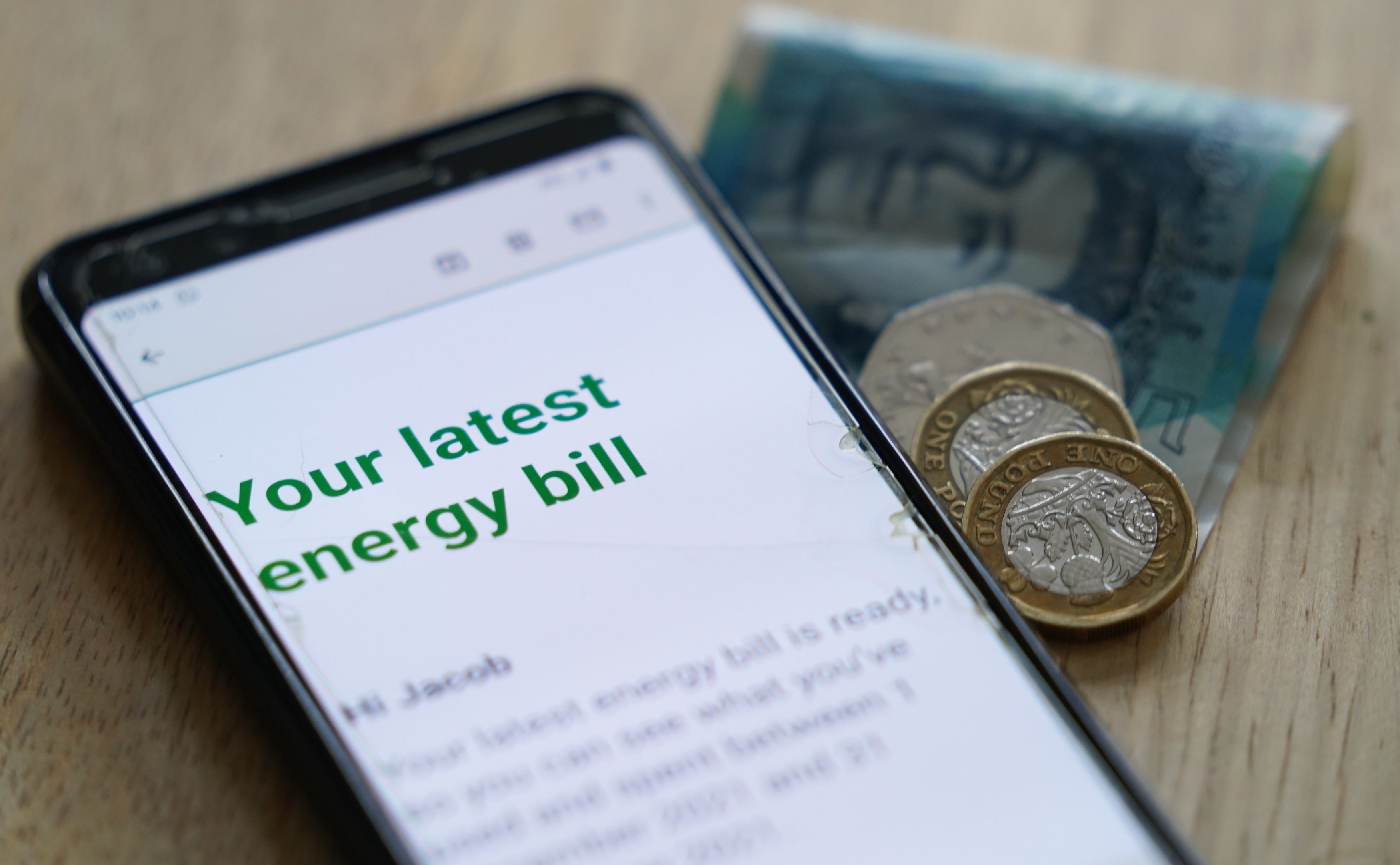- News
- UK
- Home News
Experts say the price cap increase adds to pressure on the Government
Anna WiseFriday 21 November 2025 14:19 GMT open image in galleryThe Labour Government made an election pledge to cut the public’s energy bills by £300 a year (Yui Mok/PA) (PA Archive)
open image in galleryThe Labour Government made an election pledge to cut the public’s energy bills by £300 a year (Yui Mok/PA) (PA Archive)
Get the free Morning Headlines email for news from our reporters across the world
Sign up to our free Morning Headlines email
Sign up to our free Morning Headlines email
 Email*SIGN UP
Email*SIGN UPI would like to be emailed about offers, events and updates from The Independent. Read our Privacy notice
Households across England, Scotland, and Wales face a slight increase in their energy bills from 1 January, following Ofgem's announcement of a rise in its next price cap.
The regulatory change will see typical annual energy costs climb by 0.2 per cent, equating to an additional £3, bringing the total to £1,758 for those paying by direct debit for gas and electricity.
This adjustment comes amidst growing anticipation that the Chancellor may unveil further energy bill support measures in the upcoming autumn Budget, scheduled for 26 November.
 open image in gallerySpeculation that the Chancellor could remove the 5% VAT on energy bills in her Budget statement next week has been mounting (Leon Neal/PA)
open image in gallerySpeculation that the Chancellor could remove the 5% VAT on energy bills in her Budget statement next week has been mounting (Leon Neal/PA)Experts are closely watching for details on potential government interventions, as questions arise regarding the reasons behind the cap increase and the nature of forthcoming assistance.
What does the energy price cap mean?
The energy price cap sets a maximum price that energy suppliers can charge consumers in England, Scotland and Wales for each kilowatt hour (kWh) of energy they use.
The figures provided by Ofgem indicate what a household using gas and electricity, and paying by direct debit, can expect to pay if their energy consumption is typical.
It is important to note that it does not limit a home’s total bills because people still pay for the amount of energy they use – so if it is above the average they will pay more, and if it is below they will pay less.
Energy is regulated separately in Northern Ireland.
Why is the price cap rising?
The price cap is usually largely driven up or down based on the wholesale costs of energy, but that is not the case this time.
Wholesale prices are currently “stable” and have fallen by 4% over the past three months, Ofgem said.
The regulator said the price cap change has been driven by government policy costs and operating costs.
 open image in galleryForecasters at Cornwall Insight said removing VAT would cut about £80 million from January’s bill (Jacob King/PA)
open image in galleryForecasters at Cornwall Insight said removing VAT would cut about £80 million from January’s bill (Jacob King/PA)In particular, charges now take into account a Nuclear Regulated Asset Base (RAB) levy to help fund the next generation of nuclear power stations, including the Sizewell C plant in Suffolk which will add around £1 per month to bills.
Furthermore, an increase to the price cap for standard charges – costs set by suppliers – includes pay towards the Government’s Warm Home Discount scheme, which is a one-off £150 discount off electricity bills for eligible households.
What measures might be coming in the Budget?
Experts say the price cap increase adds to pressure on the Government to provide more cost of living support to households, particularly those most vulnerable to rising costs.
Speculation that the Chancellor could remove the 5% VAT on energy bills in her Budget statement next week has been mounting.
Forecasters at Cornwall Insight said removing VAT would cut about £80 million from January’s bill.
Other potential measures include changing or removing certain levies that are included in bills.
Energy UK’s chief executive Dhara Vyas said the industry is “keen to see the Government take action to reduce bills” such as by “removing some levies from electricity costs”.
 open image in galleryThe Labour Government made an election pledge to cut the public’s energy bills by £300 a year (Yui Mok/PA)
open image in galleryThe Labour Government made an election pledge to cut the public’s energy bills by £300 a year (Yui Mok/PA)Dame Clare Moriarty, chief executive of Citizens Advice, said: “In next week’s Budget, the Government must cut electricity bills by shifting some policy costs into general taxation, or spreading them more evenly between gas and electricity.
“This could bring electricity bills down by hundreds of pounds, especially for those with the most stretched household budgets.”
What has the Government said?
The Labour Government made an election pledge to cut the public’s energy bills by £300 a year by 2030.
A Number 10 spokesman said on Friday that it was “committed to delivering that cut in energy bills”, adding: “We know that energy bills remain too high.
“That is why we are taking immediate action with millions of families receiving £150 off their bills this winter through the expanded warm homes discount scheme.”
Downing Street also said that “making Britain a clean energy superpower” would reduce the country’s reliance on international fossil fuel prices and was the way of “bringing down bills in the long term”.
However, shadow energy secretary Claire Coutinho said: “Ed Miliband promised to cut everyone’s energy bills by £300 but more and more experts are sounding the alarm that his plans will lock us into paying higher bills for decades.
“Despite gas prices falling, independent experts, energy suppliers and academics say it’s the extra costs of Ed’s net zero targets that are putting upward pressure on bills.”



